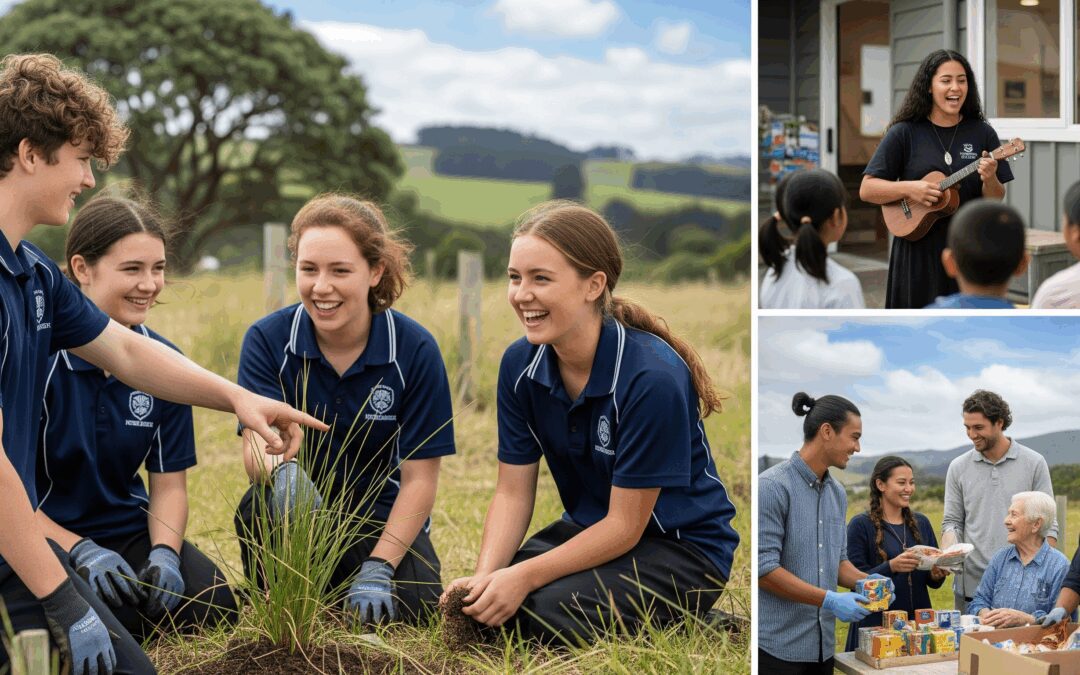Artificial Intelligence (AI) is advancing at lightning speed and there’s no escaping it, even if we are tucked away in little ‘ol New Zealand! Tools like ChatGPT, autonomous vehicles, robots, and AI-powered healthcare are changing how we work, live, and learn. I mean, who hasn’t used ChatGPT to tweak those report comments!?
Some experts estimate that up to 30% of work tasks could be automated by 2030 (McKinsey, 2023). While that might sound daunting, it also points to a simple truth: the future of work will be less about what machines can do, and more about what makes us uniquely human. That’s where interpersonal skills come in.
AI can process information faster than we ever could, but it can’t replace relationships, empathy, trust, or the deep satisfaction of human connection.
At the William Pike Challenge, we believe that in the age of automation, interpersonal skills are not “soft skills”, they are essential skills.
The World Economic Forum’s 2023 Future of Jobs Report identified resilience, flexibility, motivation, empathy, and leadership as some of the most valuable skills for the future. Similarly, LinkedIn’s Global Skills Report shows communication, teamwork, and problem-solving are consistently at the top of what employers want most.
These skills allow us to connect with others, collaborate, innovate, build teams, overcome change and challenges that AI alone cannot fix.
Imagine a classroom where every teacher is replaced by a robot. They’d be knowledgeable, structured, quick at marking books (ha!), but lacking all things human like connection, empathy and care.
Here are a few of the key interpersonal skills young people need to thrive:
- Resilience: bouncing back from setbacks, learning from failure, and staying determined when things get tough
- Empathy and emotional intelligence: understanding others’ feelings and perspectives
- Communication: expressing yourself clearly, but also listening deeply to others
- Teamwork: working with people of different personalities and backgrounds
- Leadership: inspiring others, guiding a team, and making decisions under pressure
These skills don’t just prepare young people for future jobs. They help them build confidence, friendships, navigate challenges, and contribute meaningfully to their communities.
At the William Pike Challenge (WPC), we see the power of interpersonal skills every day. Our programme inspires students through outdoor activities, community service, and passion projects. These experiences push students out of their comfort zones and into situations where interpersonal skills are tested and strengthened.
On a bushwalk, students learn teamwork and communication as they support each other up a steep track.
Through community service, they discover empathy, connection and leadership by helping people who need it most.
By pursuing a passion project, they develop adaptability and self-motivation, skills they’ll carry into every future challenge.
Our 2024 survey showed that 93% of students said WPC encouraged them to step outside their comfort zone, 92% said it helped them persevere through challenges, 88% said it helped them feel more confident in themselves, and 85% said they became more confident working with people of different personality types.
These are exactly the outcomes that AI cannot replicate. But, they are skills that will set our young people apart in the future.
The rapid advancement of AI means that interpersonal skills will be increasingly valuable in the future. We need to retain what makes us human. Reconnecting with each other through face-to-face connections through the outdoors, community and recreation is one of the most powerful experiences we can provide our rangatahi.
My Challenge to You
So here’s my challenge to you: pick one interpersonal skill and work on it this week. Maybe it’s really listening without distraction, or offering encouragement to a teammate, or staying calm when plans change. Small actions build lifelong skills.
Because in a world where AI will only get smarter, the most valuable thing we can give our young people is the ability to be deeply, authentically human. We celebrate and acknowledge the incredible schools already part of the WPC community for creating this balance, blending classroom learning with the WPC that grows real-world confidence and interpersonal skills.
For those not yet part of our community, now is the time to give your students that advantage. Let’s work together to prepare them not only with strong academics, but with the resilience, adaptability, and human connection they’ll need to truly thrive in the age of AI.
To learn more about the William Pike Challenge and see how it can work at your school, just download our free guide to find out more.

Recent Comments